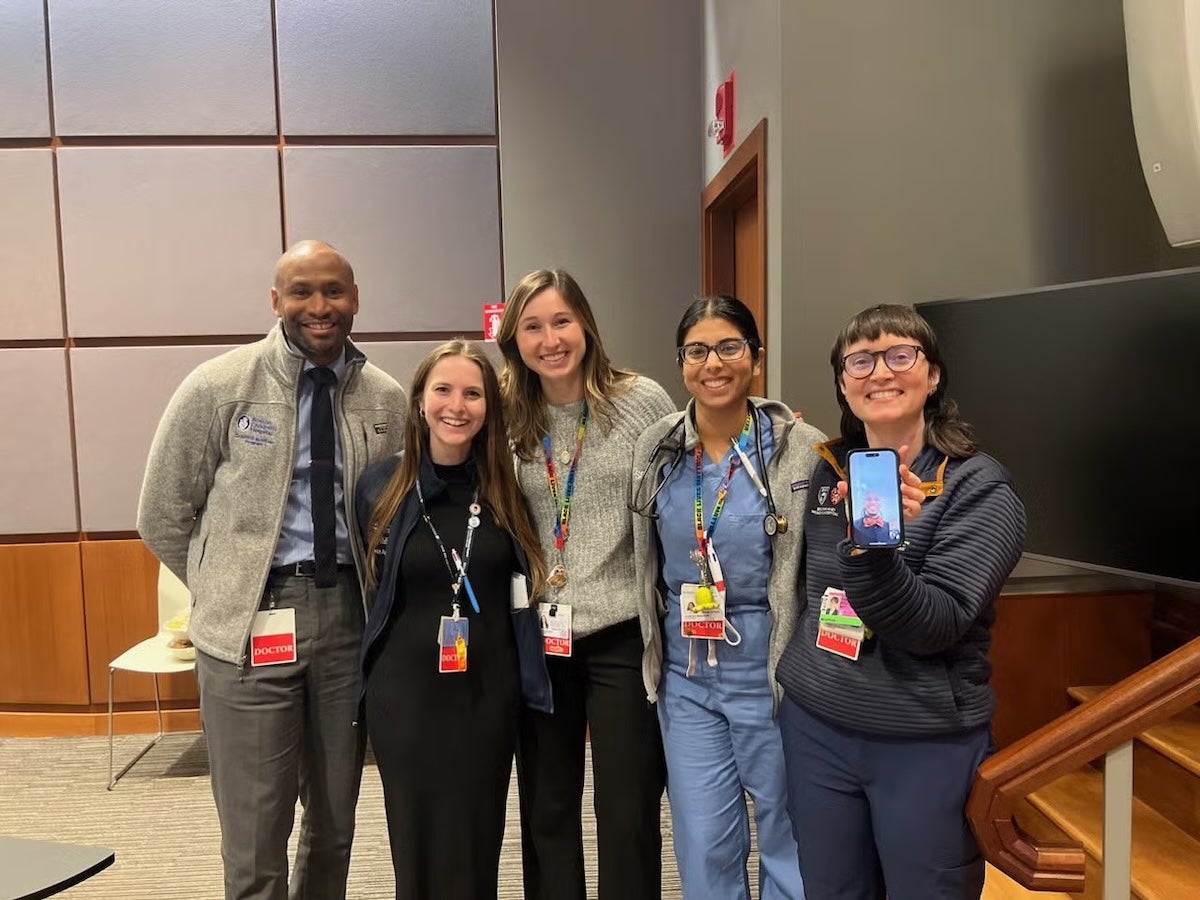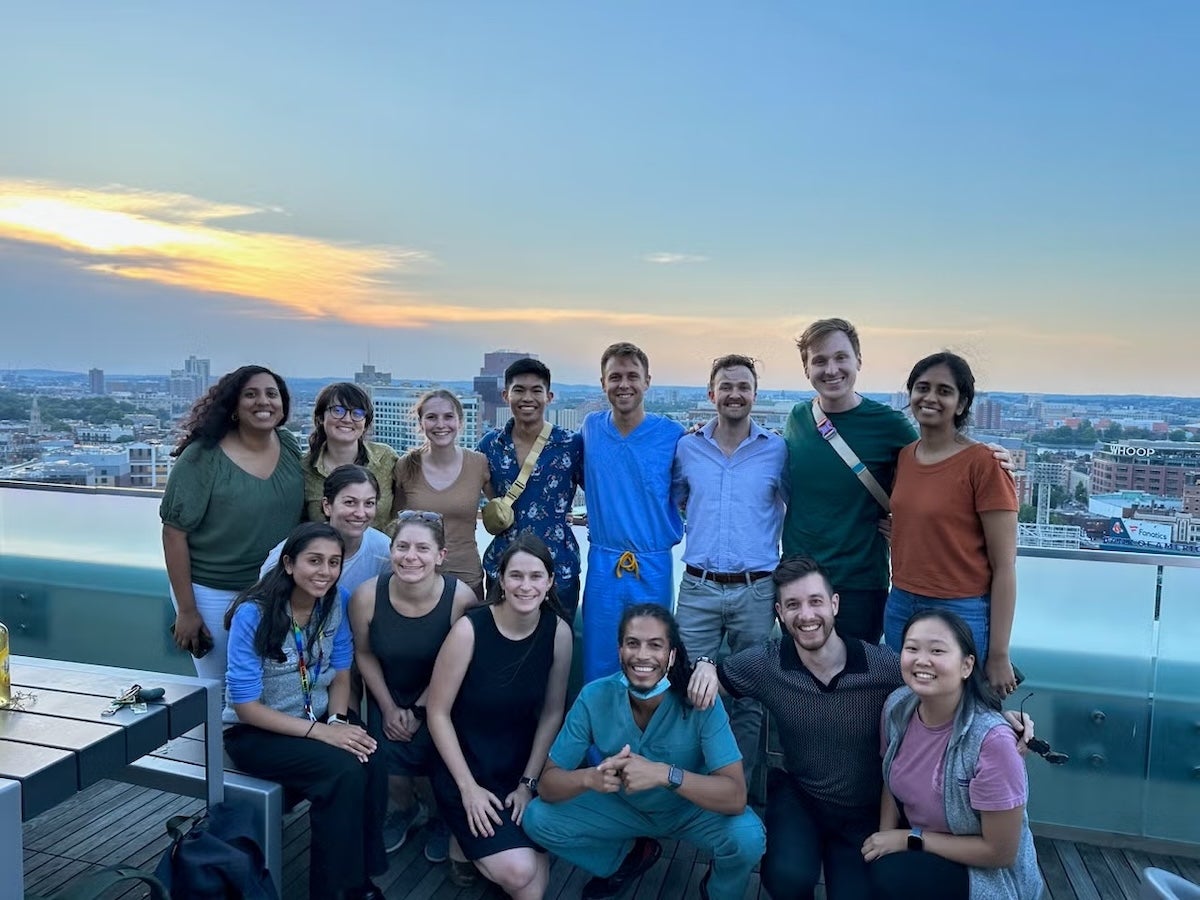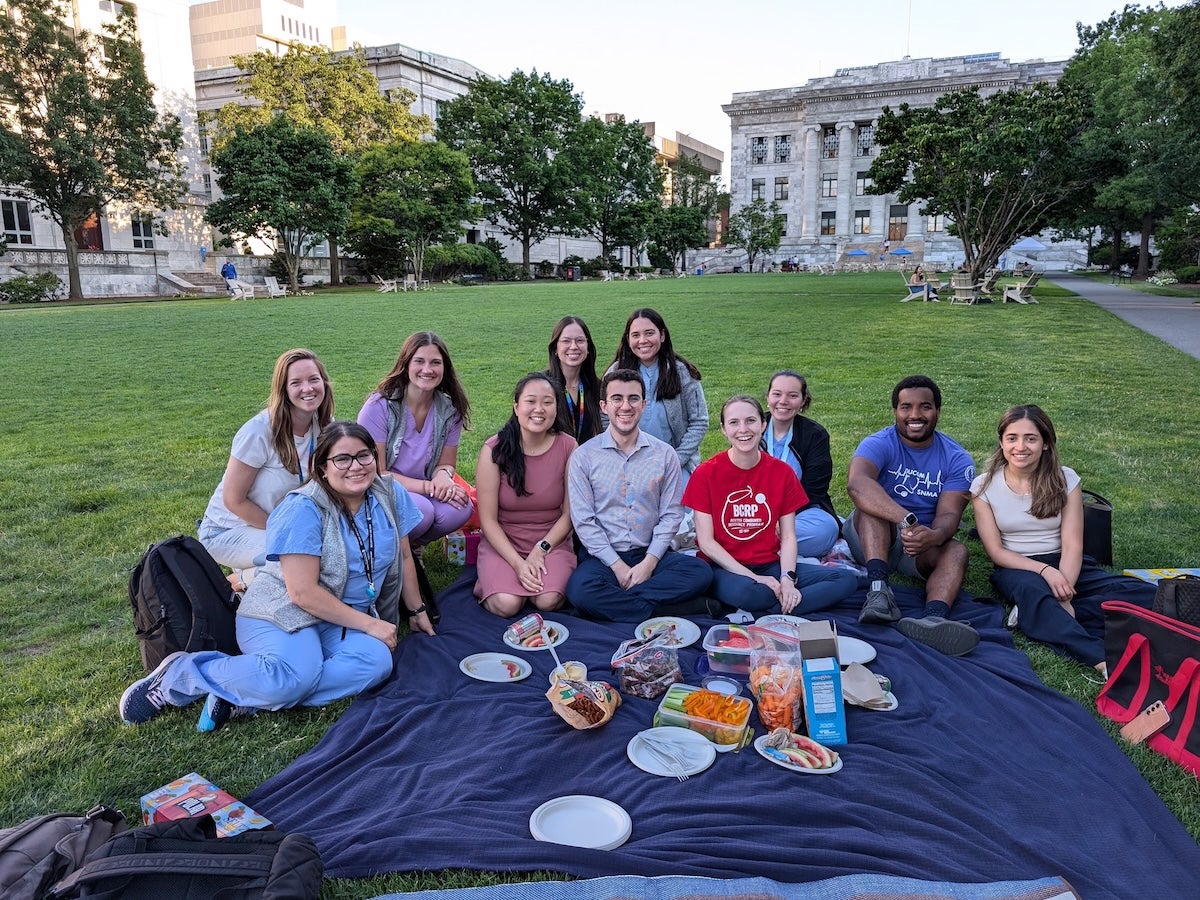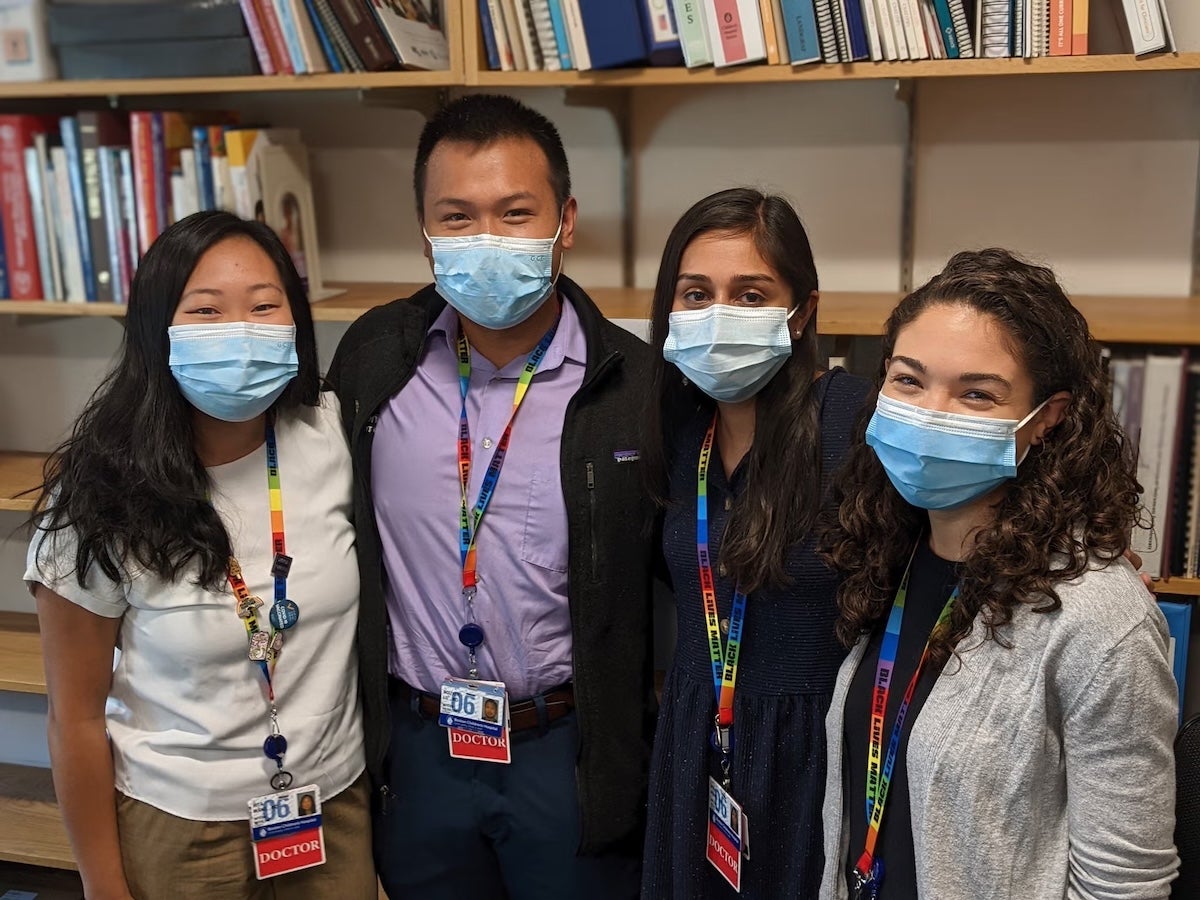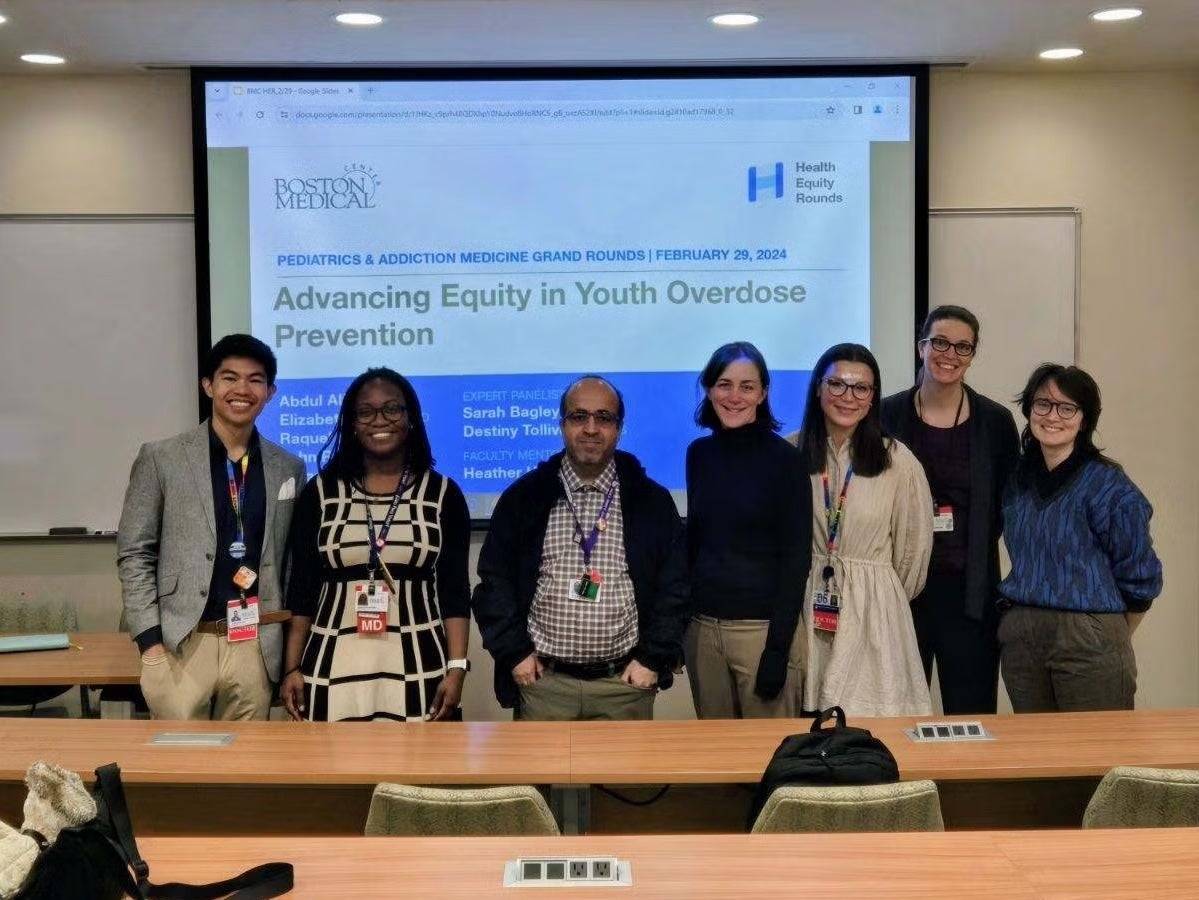Health Equity Rounds is a solutions-oriented, longitudinal, case-based conference series that aims to confront the effects of bias, racism, and other intersectional systems of oppression on health and healthcare. Similar to a Morbidity and Mortality conference, Health Equity Rounds aims to dissect the "whys" of a clinical story, with the goal of identifying solutions that can improve future care.
We believe medical education is a vehicle to encourage reflection and action towards health equity.
Our Impact
Now active at dozens of programs across the country, Health Equity Rounds (HER) has catalyzed concrete institutional policy changes as well as engagement in state-level and national advocacy. It has also helped normalize conversations about racism - it has given people a vocabulary, and served as a conversation-starter and locus for community-building.
HER residents have gone on to present at national meetings and other venues like the Association of American Medical Colleges (AAMC) and the Joint Commission. Health Equity Rounds conferences have also served as a starting point for residents’ writing, with publications in Pediatrics, JAMA Pediatrics, the New England Journal of Medicine, and MedEdPORTAL, among other top academic publications. Additionally, many former members of the team have moved on to fellowship, conducting research, and writing NIH career development awards on topics that they first developed interest in through Health Equity Rounds.
Curriculum and Objectives
A Brief History
Health Equity Rounds (HER) was developed and first presented in 2016 at Boston Medical Center by residents in the Boston Combined Residency Program (BCRP) in Pediatrics in response to a lack of longitudinal and interdisciplinary opportunities to engage in crucial conversations about racism in medical settings. The program has since expanded to institutions across the United States and Canada, and now even has its own series in the journal Hospital Pediatrics.
At Boston Medical Center, Health Equity Rounds is led by pediatric residents with faculty mentorship. While the initial focus of HER was naming and addressing medical racism, we encourage presenters to use an intersectional lens and to consider how other forms of systemic oppression may influence health and healthcare.
Example Topics
- Pharmacoequity
- Mistrust vs. distrust
- The role of hospital public safety
- Palliative care disparities
- Healthcare for LGBTQ+ adolescents
Objectives and Structure
Objectives
- Identify and analyze the effects of bias, racism, and other forms of intersectional systemic oppression in clinical scenarios
- Describe the historical context and present-day role of structural racism and its impact on health and the healthcare system
- Employ evidence-based tools to recognize and mitigate personally held biases
- Use newly learned strategies to reduce the impact of bias on patient care and combat structural racism at the institutional and societal levels
In each conference, we utilize evidence-based tools from social psychology — including individuation, personal reflection, and perspective-taking — to combat the impact of personally held biases on clinical practice.
Structure
- Presentation outline
- Review key concepts and definitions; clinical case begins
- Review historical context and present-day data that demonstrate how bias and structural racism influence the case
- Discuss evidence-based tools and next steps
Participants
Healthcare providers from various disciplines, roles, and levels of training may participate in Health Equity Rounds. We educate students and trainees - the providers of the future - as well as faculty and hospital leadership who model behavior and dictate culture and policy in the present.
Recent Press and Publications
- Khazanchi R, Wachman EM, Schiff DM, Modest A, Saia KA, Hsu HE. Mandatory Child Protective Services Reporting for Substance-Exposed Newborns and Peripartum Outcomes: A Difference-in-Differences Analysis. JAMA Pediatr. 2024 May 06. PMID: 38709513.
- Rainer T, Lim JK, He Y, Perdomo J, Nash KA, Kistin CJ, Tolliver DG, McIntyre E, Hsu HE. Structural Racism in Behavioral Health Presentation and Management. Hosp Pediatr. 2023 May 01; 13(5):461-470. PMID: 37066672; PMCID: PMC10714315; DOI: 10.1542/hpeds.2023-007133.
- Perdomo J, Tolliver D, Hsu HE, He Y, Nash KA, Donatelli S, Mateo C, Akagbosu C, Alizadeh F, Power-Hays A, Rainer T, Zheng DJ, Kistin CJ, Vinci RJ, Michelson CD. Health Equity Rounds: An Interdisciplinary Case Conference to Address Implicit Bias and Structural Racism for Faculty and Trainees. MedEdPORTAL. 2019; 15:10858. View Publication
- Poor Health Is Driving Chronic Absenteeism Among High Schoolers — Here’s How Pediatricians Can Help
- Migrant Children in Boston Deserve to Be Healthy Too
- Haitian Migrants Face Unique Challenges Finding U.S. Housing
- U.S. Formula Shortage Exposes Deep-Rooted Injustices Across Industries
- Wang RY, Anand NS, Douglas KE, Gregory JC, Lu N, Pottorff AE, Hsu HE. Formula for a Crisis: Systemic Inequities Highlighted by the US Infant Formula Shortage. Pediatrics. 2024 Jan 01; 153(2). PMID: 38196392; PMCID: PMC10827642; DOI: 10.1542/peds.2023-061910.
- Karim SA, DeCelle MG, Hale AE, Spencer DJ, Zhang YJ, Hsu HE, Ballal SA. Implementing Health Equity Huddles in Pediatric Gastroenterology Inpatient Education. Acad Pediatr. 2023; 23(8):1520-1521. PMID: 37301283.
Our Team
Health Equity Rounds is a trainee-led initiative supported by department leadership, faculty, and content experts.
Resident Team
Elizabeth Agneta, MD
Boston Combined Residency Program (Boston Children’s Hospital, Boston Medical Center)
elizabeth.agneta@childrens.harvard.edu
Rohan Khazanchi, MD, MPH
Harvard Associated Medicine & Pediatrics Program (Brigham and Women’s Hospital)
rohan.khazanchi@childrens.harvard.edu
Raquel Selcer, MD
Harvard Associated Medicine & Pediatrics Program (Brigham and Women’s Hospital)
raquel.selcer@childrens.harvard.edu
Rita Wang, MD
Leadership in Equity in Advocacy Track
Boston Combined Residency Program (Boston Children’s Hospital, Boston Medical Center)
rita.wang@childrens.harvard.edu
Contact Us
If you would like to learn more about Health Equity Rounds at Boston Medical Center or how to start a Health Equity Rounds at your own institution, please email us at HealthEquityRounds@bmc.org.

